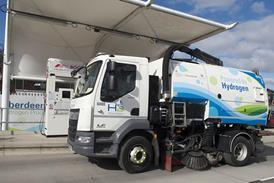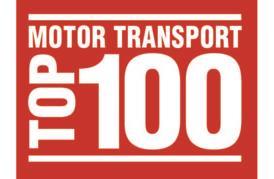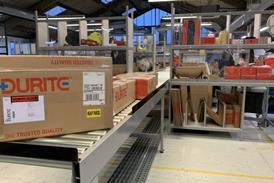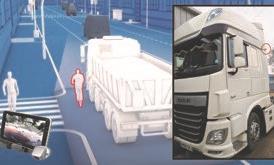Repeated delays to Britain’s trade border controls have resulted in wasteful government spending, according to a new report from the National Audit Office (NAO).
The NAO report, published this week, looks at the impact and cost of the new post-Brexit border arrangements and examines whether the government is on course to implement an efficient and effective trade border.
It found that more than three years after Britain transitioned out of the EU, traders continue to face additional administrative burdens and costs moving goods across the EU–GB border.
The report revealed that the cost to UK businesses of completing customs declarations on trade between the UK and the EU is currently an estimated £7.5bn a year.
It also revealed the level of bureaucracy required, noting that 316,000 Export Health Certificates issued by the Animal and Plant Health Agency on goods exported from Britain to the EU during 2023.
The NAO found that traders incurred a £53m annual cost dealing with the sanitary and phytosanitary (SPS) controls that the government introduced for EU imports between January 2021 and December 2023.
The report also warns that traders will face a £469m annual cost in SPS controls and safety and security declaration (SSD) requirements, once the government introduces the remaining import controls later this year.
The UK is also facing increased biosecurity risk as a result of the phased approach to introducing full import controls, the inquiry found.
In addition the government’s £150m Single Trade Window (STW) programme, which aims to reduce friction for traders moving goods across the border, has fallen behind by at least twelve months, the report notes.
The report also exposes a significant waste of taxpayers money as a result of plans were changed over time. It points to the sites built or procured at Dover White Cliffs and Dover Bastion Point at a combined cost of £62m, which were not required when the government adopted the new risk-based import control regime for SPS goods, which reduced the volume of goods which required checking.
HMRC also spent £258m between 2020-21 and 2023-24 on building and running eight temporary border facilities to cope with additional demand which did not fully materialise. In addition, 520 staff were recruited to undertake SPS checks, 370 of whom were not then required.
Commenting on this report, Ashton Cull, RHA public affairs manager, said: “We are deeply concerned to read this report detailing the level of delays in the introduction of the new border model, and particularly the Single Trader Window.
“The overspend on infrastructure and staffing is also of concern to us, particularly when we are receiving reports from members that significant delays are being caused by a lack of resource at Sevington.
“What the road haulage industry needs above all else is clarity and certainty on timelines and costs, and we hope this report can encourage more openness on these points from government.
“We will continue to work with government on the development of the new border strategy and we will ensure that the views of industry and the key users making crossings are at the heart of the developing strategy.”
Bifa also expressed alarm at the report’s findings. In a statement the association said: ”Most effective border in the world is a worthy aspiration, but the NAO Report indicates that it is an aspiration that is a long way off.
”Timetables for various programmes have repeatedly changed and goal posts have repeatedly moved, often to the dismay and cost of those businesses that are responsible for managing international trade crossing the UK border.
”A particular point that BIFA has made on behalf of its members is the lack of detailed guidance issued by some government departments, which has adversely affected trade flows.
”As yet there are no clear policies beyond a Single Trade Window, use of which is voluntary, and currently offers nothing to any users handling more than a very small number of shipments.
It added: “The government needs to take on board the comments contained within the NAO report and provide clarity for business on all the details of how it intends to deliver the world’s most effective border, with a realistic and workable timeline which will allow sufficient planning and implementation time to provide workable solutions to enable the existing or revised border and trading arrangements to be implemented.
“In light of the comments made in the NAO’s report, it is not surprising that BIFA members are losing confidence in the government’s ability to deliver that clarity; without which the UK’s international supply chains remain at risk.”









![Mercedes-Benz_eActros_600_(1)[1]](jpg/17820_mercedesbenz_eactros_600_11_978080.jpg)









